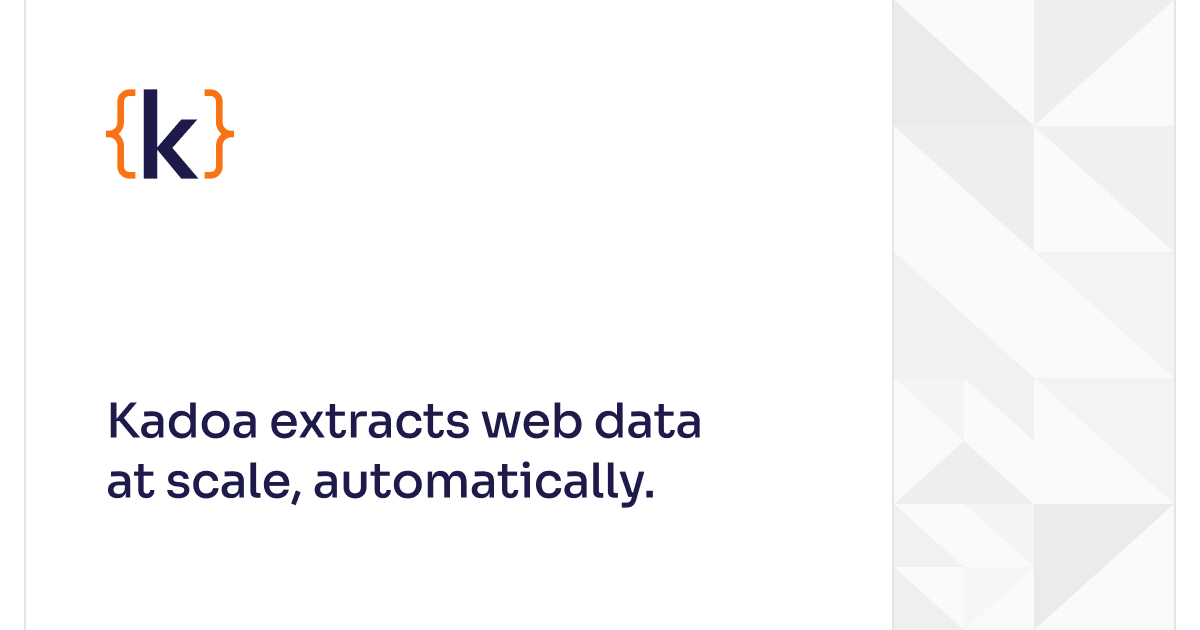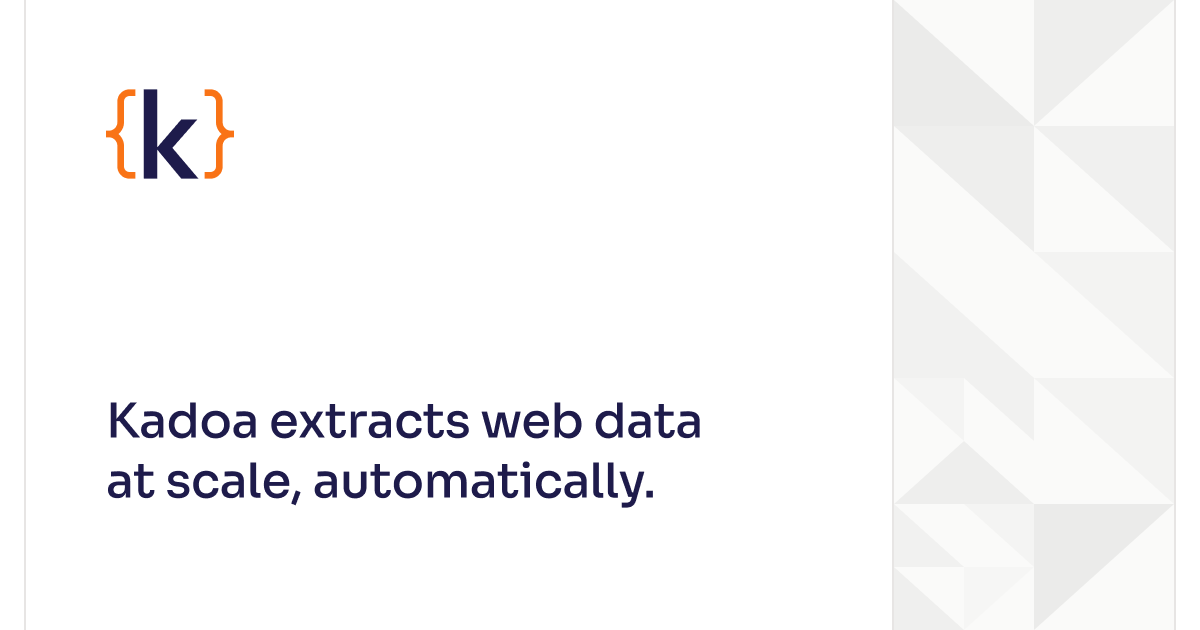kadoa
kadoa is an AI-powered web scraping tool that automates the extraction of unstructured data from websites, PDFs, emails, and presentations without the need for coding.
What is kadoa?
kadoa is an AI-powered web scraping tool that automates the extraction of unstructured data from websites, PDFs, emails, and presentations without the need for coding. It aims to reduce the time spent on data collection and cleaning, enabling businesses to quickly gain actionable insights and drive growth. With high accuracy, scalability, and ease of integration, kadoa has become the preferred data extraction tool for many companies worldwide.
Key Features of kadoa
- Automated Data Extraction: Uses AI technology to automatically locate and extract data from unstructured sources like web pages, PDFs, and CSVs.
- No Coding Required: Provides a no-code environment where users can define data structures and build complex data workflows without writing code.
- Data Workflow Automation: Supports the creation of scalable applications that automate the entire process from data extraction to transformation.
- Adaptive to Data Source Changes: Automatically detects changes in data sources, access restrictions, or website issues and adapts to these changes, enabling maintenance-free workflows.
- Data Transformation: Automatically converts extracted data into the desired format or classification system, making the data useful and actionable.
kadoa Official Website
- Official Website: kadoa.com
kadoa Pricing
- Free Tier: Offers 500 credits.
- Self-Service: Costs $39 per month and provides 25,000 credits/month.
- Enterprise: Custom pricing with support for custom workflow setups and flexible update frequencies.
Use Cases of kadoa
- Financial Data & Research: Real-time monitoring of financial markets, extraction and analysis of financial news and reports to support investment decisions.
- Retail Intelligence: Monitoring price and inventory changes on e-commerce platforms to help retailers optimize pricing and manage inventory.
- ETL for LLM: Extracting text data from web pages and PDFs to provide datasets for training and analyzing large language models.
- Job Market Data: Extracting employment information from various job websites and recruitment announcements to analyze job trends and market dynamics.
- Media Monitoring: Monitoring brand mentions in news media and social media to provide real-time data for brand reputation management and crisis PR.
Features & Capabilities
What You Can Do
Data Extraction
Data Transformation
Web Scraping
Automation
Categories
AI
Web Scraping
Data Extraction
Automation
No-Code
Data Transformation
Business Intelligence
Financial Data
Retail Intelligence
Media Monitoring
Example Uses
- Financial Data & Research
- Retail Intelligence
- ETL for LLM
- Job Market Data
- Media Monitoring
Getting Started
Pricing
freemium
Free Tier: 500 credits. Self-Service: $39/month for 25,000 credits. Enterprise: Custom pricing with support for custom workflow setups and flexible update frequencies.
Screenshots & Images
Additional Images


Stats
134
Views
0
Favorites

